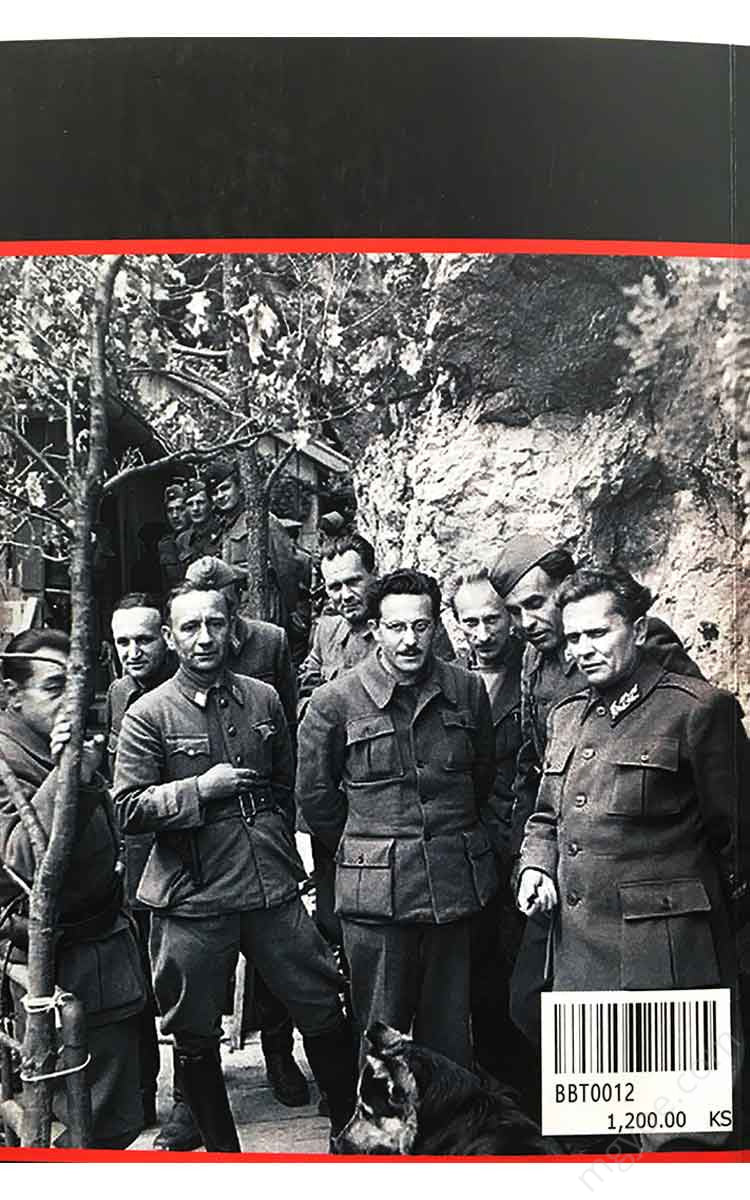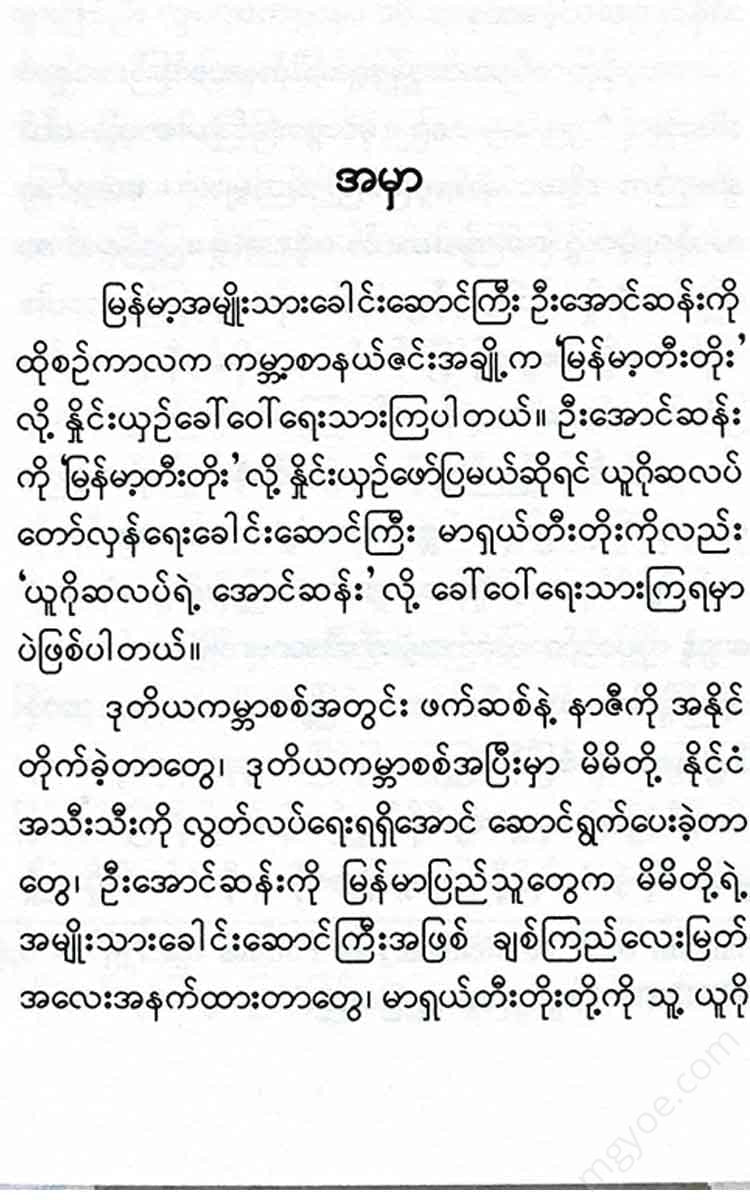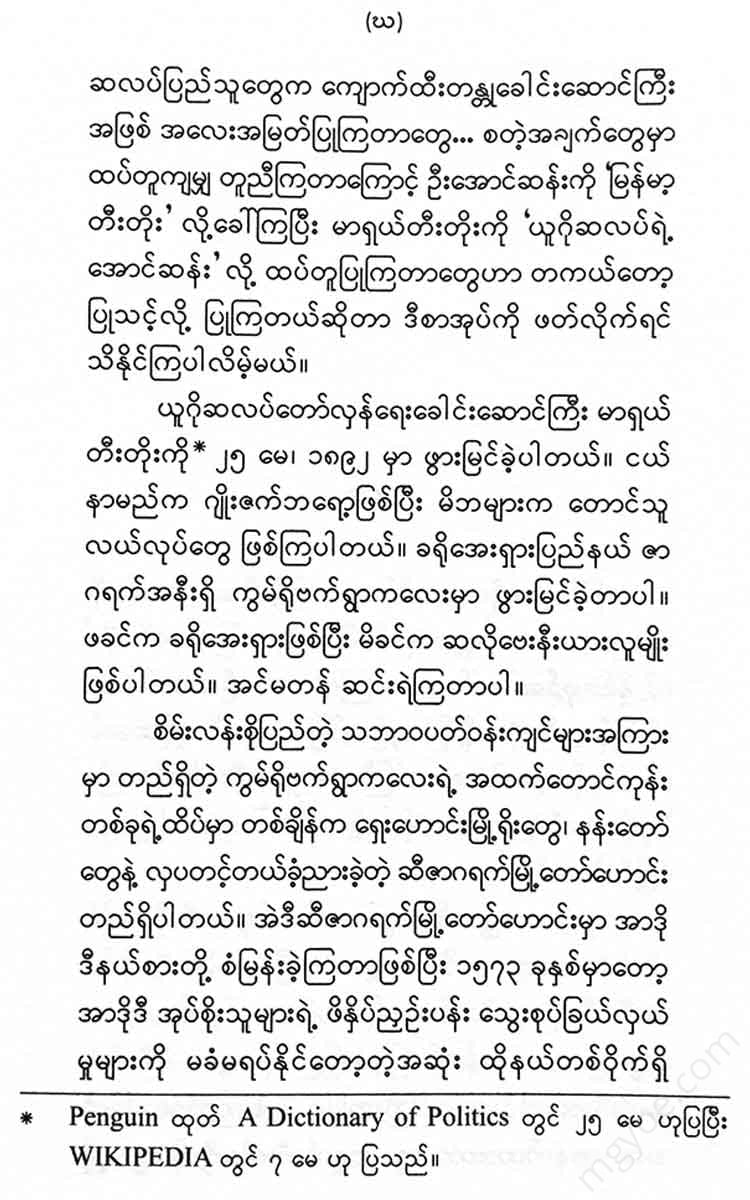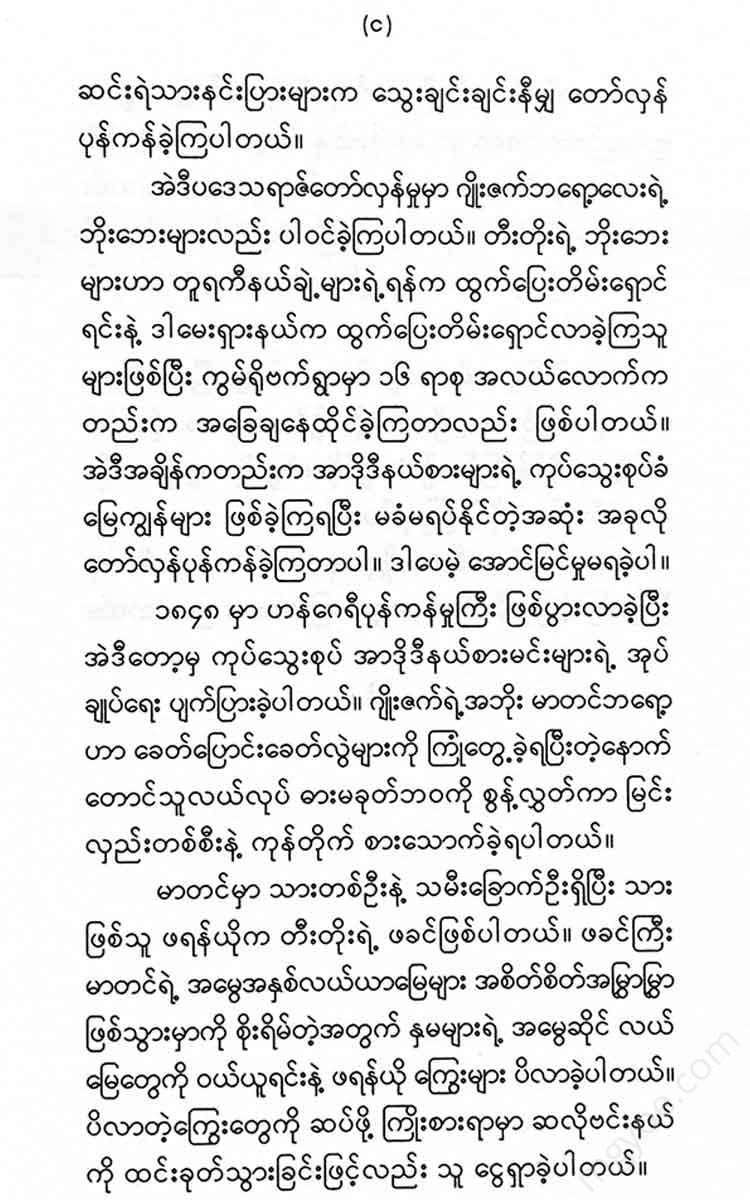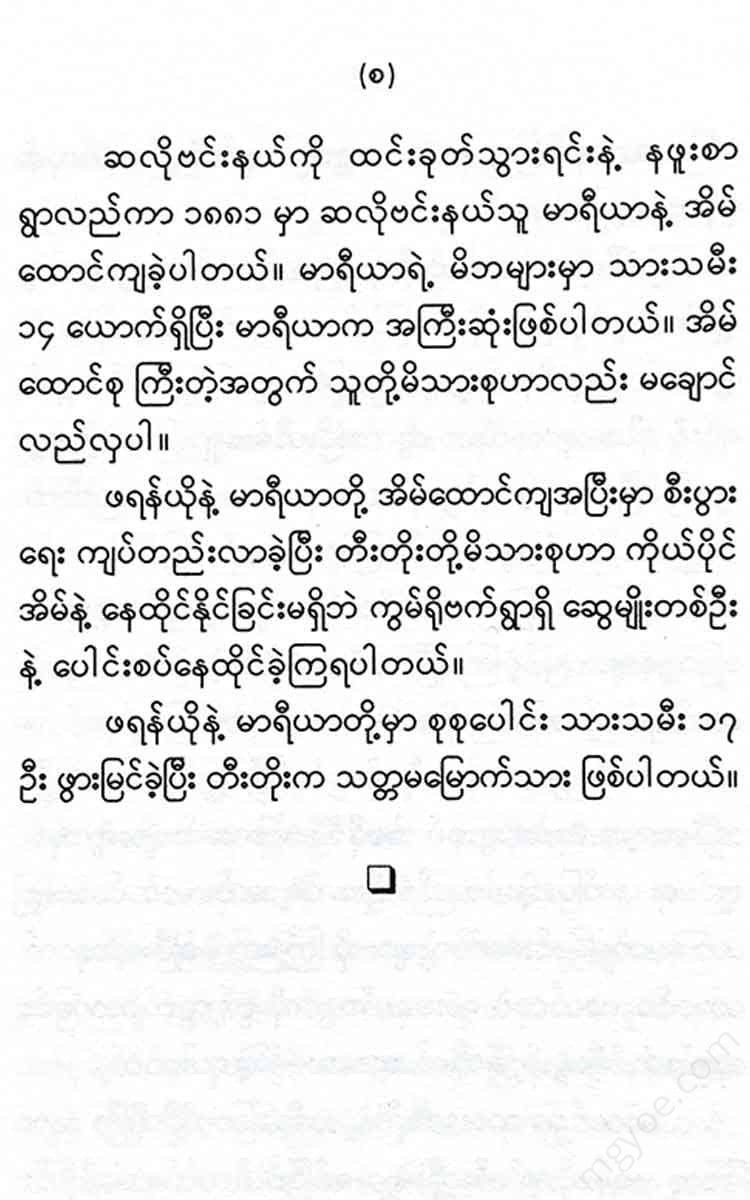စိတ်ကူးချိုချိုစာပေ
Myat Thet - Martial Tito
Myat Thet - Martial Tito
Couldn't load pickup availability
Joseph Brod's parents had 17 children, so they had to survive in poverty.
Joseph and his family had a difficult childhood, with the children unable to feed themselves properly and even having to lock the food in the kennel. During the winter, when food was scarce, the family had to eat only millet instead of wheat. They say that their siblings only ate properly when guests came. When guests came, their mother would let them eat as they pleased without any fuss.
Well... only after the guests had left did the siblings hear their mother's saxophone playing, making them bow their heads.
The happiest times in Tito's childhood were when he visited his grandparents. His grandfather lived in Slovenia.
But Joseph, as the saying goes, “Don’t live in a place of pleasure, live in a place of pleasure.” He had to return to his parents without living in his grandfather’s village for a long time. At that time, Little Tito was only five years old and had to help his grandfather with household chores and also take care of the chickens, ducks, cows, and horses that were raised in the village. While living with his grandfather, Little Tito enjoyed the most was being with the horses. Little Tito could ride a horse without a saddle from that age.
When he returned from his grandfather's village to the village where his family lived, his family was not at peace. As a rural family, they could do things like pounding rice, grinding bread, etc. They also had to mow grass, tend cattle, etc.
At that time, about 60 percent of the population in the Croatian state was illiterate. They were really poor. Parents did not want to send their children to school because they had to work in the fields and in the streams. That is why there were few literate people. But if we talk about Tito, this child is lucky in education. Because his parents gave Tito an education in a situation where he had nothing.
His parents sent him to school when he was seven years old. At the beginning of school, he had some difficulties juggling housework, farm work, and studying, but gradually he became a good student.
Although he later became a communist, in his childhood, Thito was a devout young man. He attended church every Sunday with the elders and worshipped.
He had to leave school at the age of 12, and, as was customary in the village, he had to do some odd job to make ends meet. He initially worked as a herdsman for his uncle's cattle, but later became a waiter.
At the age of 15, he went with a relative, a sergeant, to the city of Sessac, 60 miles from his hometown, and worked as a waiter at an army officers' residence.
The young man from a small village was initially amazed and delighted by the city's grand buildings, large railways, and other urban features, but later became bored.
I got bored with the daily chores of washing dishes and setting tables, as well as the trappings of the city. But I didn't want to go back to the forest, so I quit my job as a waiter and started working in a factory.

